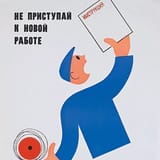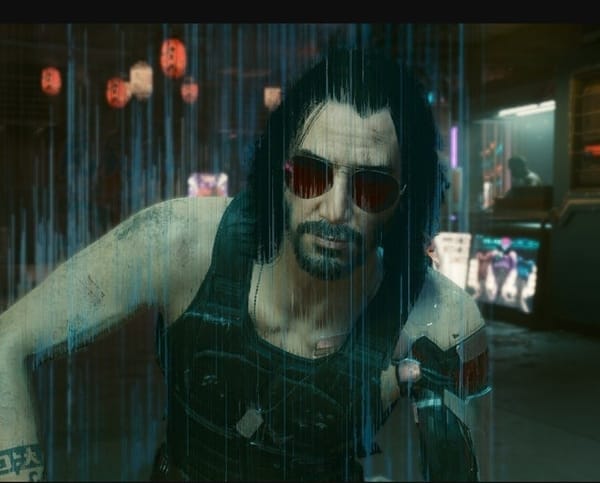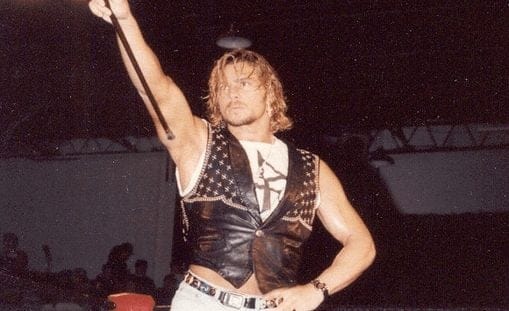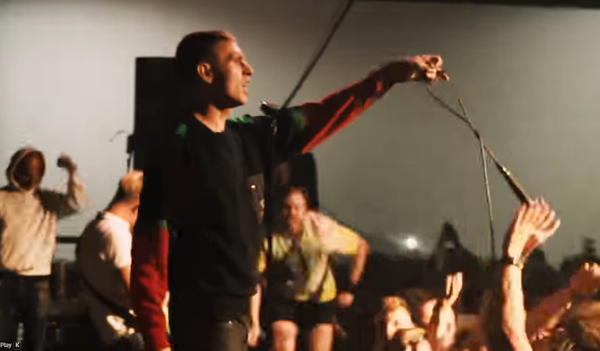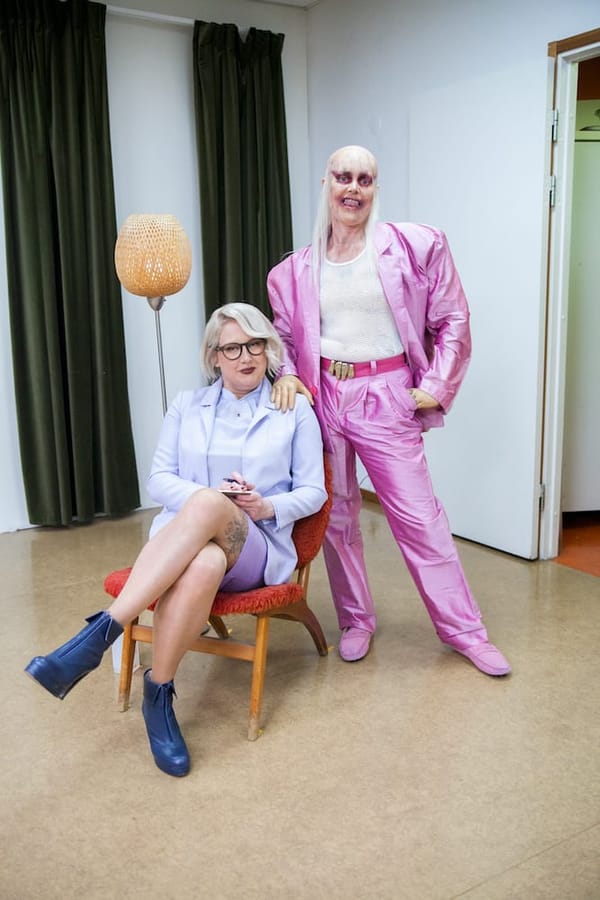Euphoria and Time
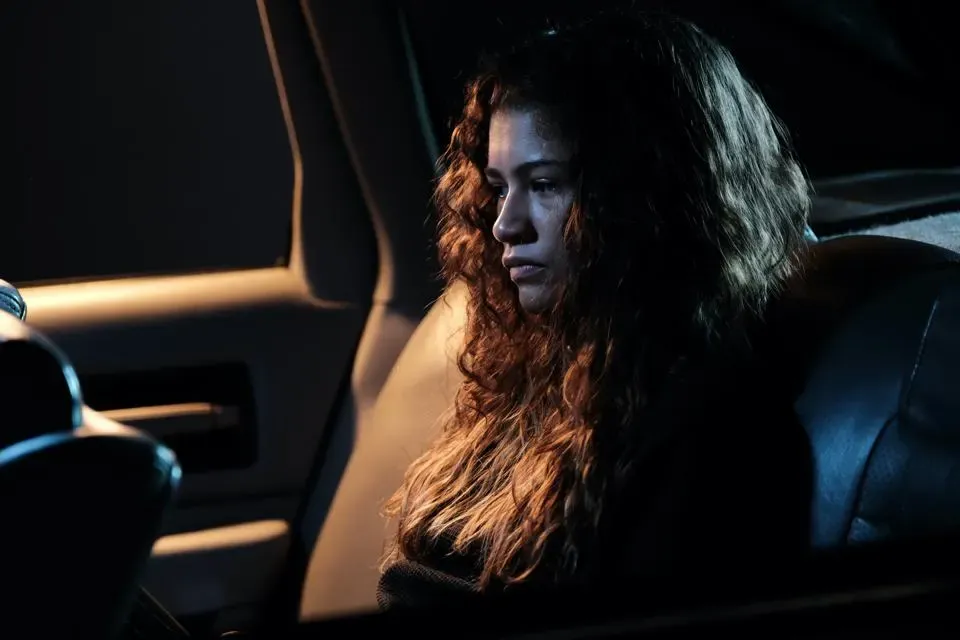
I finally watched Euphoria but I don't think I'm interested in it for the reasons a lot of people are. Two caveats precede this post.
One, I am generally late on television pop culture "moments". That's why, in 2025, someone (me) is writing about Euphoria. A general weariness of golden age of prestige television means that I don't actually watch big, thinky shows on time, if ever. Mostly what I want to do is watch Good Mythical Morning while I paint miniatures, fall asleep to pro wrestling histories on YouTube, or continue my endless loop of comedies I've already watched dozens of times. So there's probably a third caveat hidden in here, which is that this may not be interesting at all because I'm late to the party. But also the idea of being "late" to something is part of my interest in the first place.
Two, Euphoria's obsessed with the fluidity time and place, which is what I'm thinking about. Other people are writing about these things, too, but they're mostly trying to piece together timelines. That's how we engage with all media now: why doesn't this thing make sense and can I get together with other people to figure out how to force it to make sense? Any sort of authorial intent disappears and the act of artistic engagement is essentially outsourced to the wisdom of the crowd via likes, upvotes, and retweets - this interpretation makes sense because it got the most engagement. The death of the author consists of a chalk outline on Reddit.
The byproduct of that is that it's nearly impossible to figure out if anyone is talking about the muddled temporality and the meaning of time in Euphoria in the way I want to because any and all such results are buried under an endless sludge of Reddit posts and Fandom edits about how to piece it together. Which is besides the point and would be pretty uninteresting to me even if it were. This is all to say that if someone has engaged with these themes (surely they have) and I'm not gesturing that way, it's not a deliberate omission.
We don't know when and where Euphoria takes place. We have a ballpark idea: Rue was born on September 11, 2001 and it's set in the fictional California town of East Highland, which seems simultaneously small and vast (it's suburbia but has a massive drug problem and is close to The City, presumably Los Angeles but never clarified). This is, as near as I can tell, the only date mentioned in the entire show. Only September 11, 2001 isn't a date anymore, it's an event. And everything in the show is presented as relative to an event: born on September 11, after the New Year's party, before the Winter Formal, during Rue's overdose. Where there isn't a discrete event, the show's temporal anchor is music (more on that in a moment).
But Rue is also a Humbert Humbert figure, admitting in the first episode that she's "not always the most reliable narrator". That should be borne in mind as the show proceeds, because Rue doesn't just tell her own story but everyone's. Not quite every episode begins with a character flashback, going through the ways everyone ended up so broken (and everyone is broken). But characters don't narrate their own histories, Rue does. Only she's unreliable. And once an episode starts, the action flits from moment to moment, season to season, until time doesn't make sense. The only person whose desperate attempt to make sense of time fracturing is Rue, not us as viewers. Like everything else about the show, we're supposed to be disoriented as colors, sounds, scenes wash over us. This is where I get annoyed at the online attempts to reassemble what's supposed to be a confusing emotional truth at Euphoria's core. It's annoying and not really the point, but even fan attempts to turn the show's sly toying with time are part of a broader meta-cultural attempt to put our shattered symbolic landscape back together again. The semiotic war rages on.
Phones are everywhere in Euphoria. They change time in Suburbia, breaking up conversations and making the characters incredibly nervous. The final episode of season 1, focused on the winter formal, is a good example. The event is akin to prom, one of the big deal events in a high schooler's life. Everyone goes, they're chatting, dancing, and drinking. But a text arrives. That pulls a character out of time (the "normal" rhythms of conversation are interrupted by the strange looking glass time of texting) and place (Jules gets up to hide in the bathroom to text). Technology isn't just some thing and different mediating technologies fundamentally alter how we experience time. Simple example: if someone asks you a question via voice, it would be weird to let it go unanswered for three hours, which isn't the case with text. That's now normal but what's normal is decidedly weird. It's weird to carry on a heartfelt discussion with friends while glancing down at your personal tricorder before bolting up, meat-friends temporarily forgotten in favor of maybe synchronous but also maybe asynchronous communications with people who aren't actually present.
All of this adds up to context collapse. Everything is as important as everything else. Nate's blackmail campaign is as important as his choking Maddie is as important as a breakup is as important as drug dealing is as important as someone's outfit. People are always present via phone, text, and video but also not present as they repeatedly switch modes of communication. The one thing that breaks this flat plain of importance is the whispered threat of pedophilia. Only this is also context collapse: the collapse in distinction between child and adult, as well as between child and child. And there are pedophiles on the show, notably Cal, which makes pedophilia the go-to charge leveled at others to keep them in line (and it is everyone because, as Nate reminds Jules, having nudes of yourself on your phone is technically child pornography if you're under 18). Importantly, the only time the state exercises its power is via these threats, with Nate's domestic violence against Maddie an offshoot of their (teenage) romantic and sexual relationship. Everyone is accusing one another of pedophilia constantly.
Some contexts need to be enforced. Or, more accurately, exactly one context needs to be enforced, as Pizzagate, QAnon, and Euphoria show. And technology in the show becomes ever more sinister, helping to remove the enforcement of contexts everywhere but here. The phone, Cal's recordings, even automobiles become threats. They're surveillance machines which surveil for the same reasons they confuse. Characters leave traces outside time, or perhaps in a different time. Cal's recording of his sexual encounter with Jules (pedophilia) is an extended, endlessly revisitable snapshot of a moment. Sexts and nude selfies are the same. A moment is no longer just a moment. It's meant to be removed from time, from space, endlessly mixed and remixed, often for purposes of revenge. It drives everyone mad and is every bit as much a drug as the actual drugs in East Highland.
These motifs come to a head in S2E1, which is perhaps my favorite of the series. It starts with the regular flashback, this time a flashback to drugdealer with a heart of gold Fezco's early life. When is it? We don't know. His mentor/grandmother drives a 60s car but the other cars on the road are 90s style K-cars. Mid-00s cellphones burn in a 2010s model microwave. The home decor is from the 70s and 80s, but notably everyone's home decor seems from a bygone era (it has colors). We know Fezco is older than Rue's cohort of highschoolers (he dropped out of high school at age 20 but we don't know how old he is during Euphoria) but not how much older. Maybe we can place it by Ashtray's age but, again, the actual facts don't matter - the feel of it does. Similarly but tangentially, Cal's flashback two episodes later is clearly in the late 80s, but his then girlfriend is pregnant at the end, which would put Nate's brother around 30 years old and he's clearly not, but also I don't want to try to force the timeline to make sense because that's not the point. It's all a drug-induced fever dream, except the drugs aren't always the actual drugs. Instead they're time, sex, power, money, or simply being in the presence of other people.
After the de rigeur flashback, the episode becomes a nightmare. Rue and Fezco meet Laurie, an anhedonic school teacher turned drug kingpin (the metaphors are thick there), only for the meeting to turn into a menacing scene in Lynchian style. Cassie gets drunk on her way to the New Year's party, turning her phone off and thus effectively disappearing from her friends' perception. Fezco nearly beats Nate to death at the party; he's very calm about it and all the kids decide to shut up about what happened in the aftermath.
Here's where music matters. Euphoria is never silent and has a soundtrack a mile long. But it does something curious. When there's a flashback, the music is either era appropriate, which helps us locate the, or it's composed by Labrinth for the show. When the action is in the "present" the music jumps all over time. Tender or reflective moments tend to be paired with old songs, parties and drugs with 2010s to 2020s mumble rap, house music, and cursive sung ballads. Except here: from Fezco's flashback until halfway through the house party, the songs are out of time. Rue sings Tupac in Fezco's car. Fezco, Rue, and their companions are stripped down in Laurie's house to Gerry Rafferty. The party scene opens with Biggy blaring in the background. Something's amiss.

Let's return to Cassie, because I think she's the pivotal character in this episode. Drunk on a curb after paying cash(!!!) at a convenience store, Nate offers her a ride in his truck, the decidedly current (or current at the time of shooting) "Who's That" by Virus Syndicate playing on his radio, the first such song in the episode. As they drive, they get increasingly horny for one another, Nate driving faster and faster, Orville Peck's "Dead of Night", another current-ish song bridging old and new styles, playing. Nothing but blackness and an occassional streetlight can be seen outside the windows. There's a sense of traveling between worlds, two young, impossibly messed up soon to be lovers hurtling to a party which is current, raucous, noisy, surveilled.
Cassie and Nate of course have sex and, in keeping with the show's high romance, it's in a bathroom. Cassie hides in the shower, hoping her friend/Nate's ex Maddie doesn't find her. But how could anyone find her? Her phone's been off the entire episode. But there it is, at her feet while she's huddled in the bathtub, just out of reach. She stares at it in terror but why? Then it buzzes when her sister calls. Undone by the phone, which is always there, always watching. Everything snaps back to the complexity and weirdness of the party. Time, place, and technology all collide once more to become one thing but also too many things at once.
It's euphoric.
This is quite aside, but I finally get mumble rap (not using it pejoratively here) after watching Euphoria. Not everything is made for me and I shouldn't get things which aren't unless I get some sort of cultural context to it. I'm a 48 year old white guy and all my heroes are in their late 50s or older. I'd be very worried if 20somethings were making music for me.
Euphoria gave me some of that context. I get it now even if I'm not reaching for it in the car. It sounds like the end of the world, only the end never quite arrives while also never quite stopping. I'd probably listen to it if I were 20, too.
Shoutout to the dead.
